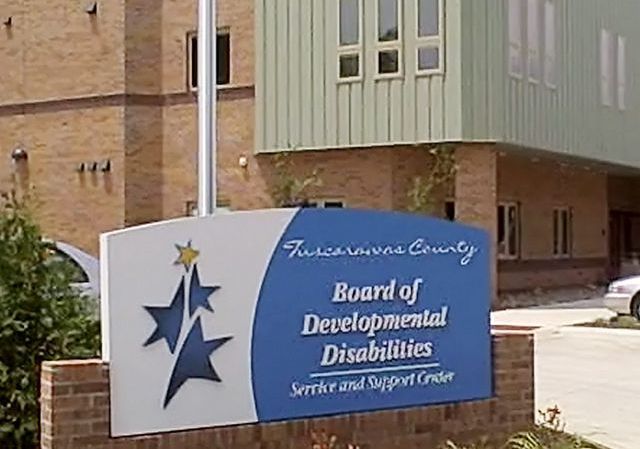Tuscarawas County Board of Developmental Disabilities requesting repeat of 1.7 mills
Tuscarawas County voters will be called upon to decide on Issue 39, a 1.7 mill, 10-year renewal levy for the Tuscarawas County Board of Developmental Disabilities (TCBDD) in November.
The levy, first passed in 1988, then renewed in 2002, provides approximately $1.9 million for services and programs for people in the community who have developmental disabilities, according to Natalie Lupi, superintendent of TCBDD. The renewal would not raise taxes. Lupi said it would cost the owner of a $100,000 home less than eight cents a day to continue their support.
The levy is one of three, according to Lupi, which makes up 63 percent of TCBDDs funding. State and federal funding constitute 13 percent and 20 percent of the agencys total budget, respectively. There is an additional four percent that comes from reimbursements from various sources. Local and state funding is used to obtain more federal dollars, she said.
This is a 10-year levy, which means that it provides a constant level of funding until it expires. Your taxes will not increase from year to year. What this levy does, it provides for the current operation of our services, Lupi said.
Those services are best known in the community as Starlight School and Starlight Enterprises, Inc (SEI). Services include early intervention services for children from birth to age 3 in which intervention specialists work in a team approach with parents in the childs natural environment to provide strategies and supports that can be integrated into everyday routines and activities to reach outcomes based on the childs needs and the familys priorities. Families can receive physical, speech, and occupational therapies, in addition to working with the early intervention specialist.
Preschool programs for children age 3-5 are held at Starlight School, where children placed through a collaborative agreement with their schools are integrated with children without disabilities.
Services for school-age youth, ages 6-21, who also are placed through their local school districts, supply educational support, assistance with transition into adult life and work, occupational, speech, and physical therapy, nursing and transportation.
TCBDD also offers service facilitation, which allows individuals enrolled in the program to have someone who works with him or her to coordinate community services and the individuals choices to link that person with chosen and needed services throughout life.
Lupi said more than 100 area families participate in Family Support Services (FSS). The primary purpose of the FSS program is to better enable families to cope with the complex care-giving and resource needs of their special needs children/adults and to maintain the familys ability to care for their child in the home. The services provide assistance with diet, training and education, adaptive equipment, home modifications, and respite. FSS promotes unity of family by providing supports/resources for families which may not be provided by insurance or other resources.
We are seeing an increasing need in the aging population of individuals who receive our services, Lupi said, noting that of the approximately 285 people in Tuscarawas County Board of Developmental Disabilities adult programs, more than one-half are age 40 or older. She said it is important to work with those families to provide residential options.
Lupi stressed that Tuscarawas County Board of Developmental Disabilities and the individuals who look to this agency for support are dependent on local tax dollars. We are not only responsive to the needs of individuals with disabilities, but we work very hard to be good stewards of public money. We take our mission very seriously. We know that we must balance the needs of individuals in the community with the funds that our community gives us for that purpose and spend within our resources. We are interested in being here to provide services and supports for the individuals and families in our community who have come to rely on us for the long haul, she said.




